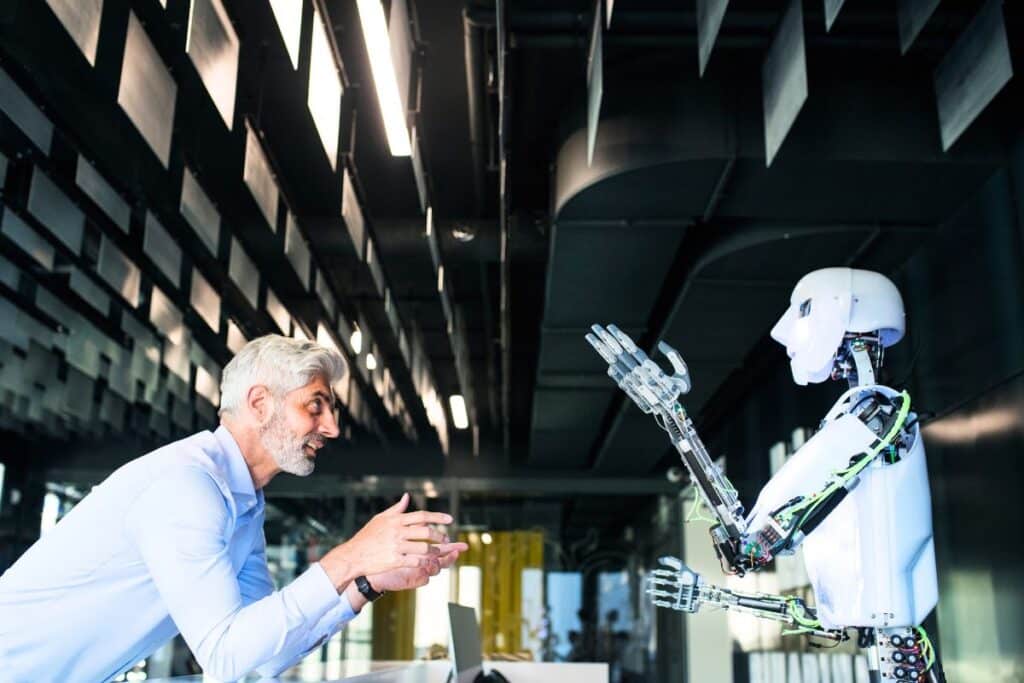Worried your job might vanish with the next wave of AI? Turns out, there’s a whole world of roles that not only survive the tech shift—they thrive in it.
AI is booming—and reshaping the job market
Between the buzz of new tools and the occasional existential dread, artificial intelligence has transformed more than just how we search or shop—it’s changing how we work. But while some roles may shrink or shift, others are growing fast, especially in areas where human expertise and technical know-how intersect.
Thinking of a career pivot or simply future-proofing your CV? These in-demand roles could be your next smart move.
Top jobs that ride the AI wave
1. Data Scientist
If you’re the kind of person who actually enjoys diving into spreadsheets—or better yet, spotting patterns in chaos—this one’s for you. Data scientists collect and interpret massive volumes of information to help businesses make smarter, faster decisions. Their work often supports how AI models are built and improved. And yes, the salary reflects the skill: upwards of €4,500 a month isn’t unusual.
2. AI Engineer
Part coder, part innovator, AI engineers design the very brains of intelligent systems. Whether it’s training a chatbot or improving a self-driving car’s vision, these pros are in high demand. You’ll need a strong grip on machine learning, statistics, and programming. The job’s as dynamic as the field itself—and perfect if you love solving complex problems.
3. Big Data Architect
Think of this role as the city planner of information. A Big Data Architect builds the infrastructure that allows vast streams of data to be stored, accessed, and analyzed efficiently. Expertise in tools like NoSQL databases is key, and the role pays handsomely.
4. Web Developer (with AI flair)
Web developers may not seem like the obvious AI stars—but today’s best are working on AI-integrated applications, advanced platforms, and smart web tools. Short, practical training courses can get you started fast, even if you’re switching from a completely different field.
5. Cognitive Systems Specialist
At the crossroads of psychology, human biology, and tech lies the cogniticien (or cognitive engineer). These pros design more intuitive, human-friendly systems—think voice assistants that really understand you, or dashboards that actually make sense. If you’ve got a knack for both tech and human behaviour, this path could be surprisingly fulfilling.
6. Machine Learning Engineer
If you enjoy teaching machines new tricks, this is your niche. Machine Learning Engineers develop and refine the algorithms that help AI models learn from data and improve over time. It’s complex, yes—but it’s also right at the centre of where AI is heading next.
7. Prompt Engineer
Ever asked ChatGPT something and been amazed—or underwhelmed—by the response? A Prompt Engineer crafts the perfect queries, or “prompts,” to get the most accurate and creative output. It’s a newer job title, but one gaining serious momentum in the generative AI space.
8. AI Trainer
Behind every great AI is a human who helped shape it. AI Trainers test and fine-tune how models respond, working alongside engineers to boost accuracy and usefulness. It’s part tech role, part editor, part detective—and growing quickly.
9. AI Ethics Officer
As AI becomes more powerful, questions about responsibility, fairness, and transparency come front and centre. Enter the AI Ethics Officer. Their role is to ensure that systems are built and used in a way that aligns with social values—and doesn’t cause harm. It’s a crucial job for the future of tech.
10. Chatbot Project Manager
From online banking to customer support, chatbots are everywhere. The people behind them? Project managers who coordinate their development and launch. With the right mix of tech knowledge, user empathy, and management skills, this role is a key player in modern digital strategy.
Beyond tech: human jobs in an AI world
It’s true that many AI-driven careers lean toward engineering and IT, but that’s only part of the story. The rise of AI is also reshaping fields like healthcare, education, customer service, and the creative industries. Rather than replace human talent, AI is starting to act more like a partner—freeing up time and boosting productivity.
The key takeaway? Lifelong learning. The most future-proof workers are those ready to reskill and adapt. Whether through formal education or flexible online programs, staying current with technical skills—and sharpening your uniquely human ones—can keep you ahead of the curve.
Because in a world run by algorithms, being the one who understands, guides, or challenges the system might just be the safest job of all.





